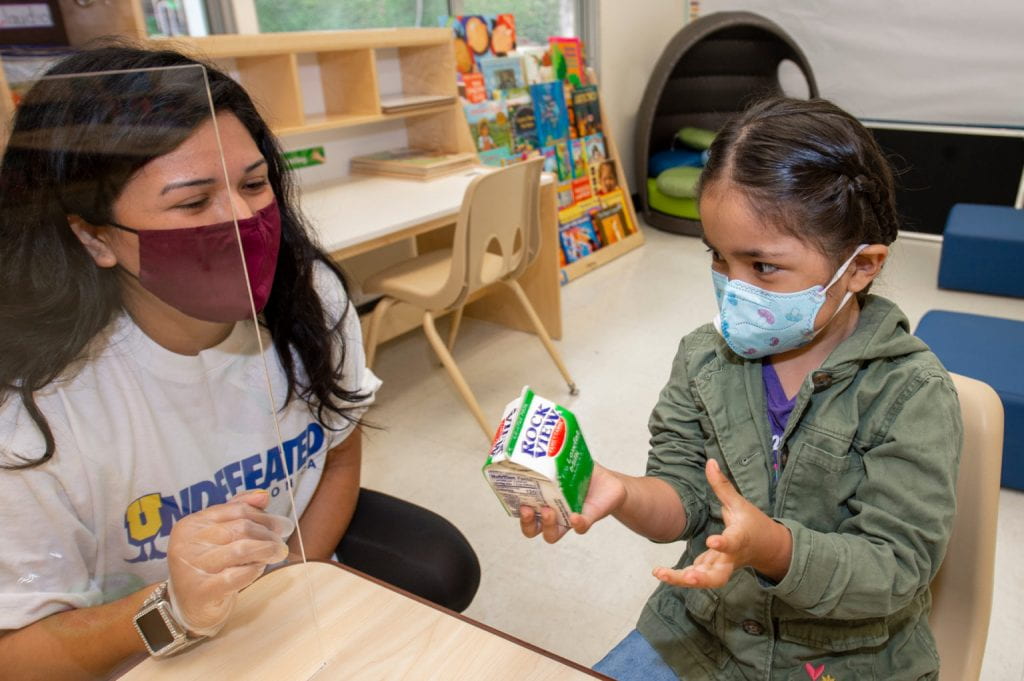Kids and teachers reunite with smaller classes that will allow faculty and staff to focus on safety protocols in advance of a full fall return.
A wide range of emotions were on display as in-person learning returned this week to USC’s School for Early Childhood Education. There were wide and bright eyes, long hugs and even some tears among kids who were last together 16 months ago.
Once the children were situated in their Head Start classrooms at the University Park Child Development Center on 27th Street, smiles were unveiled as they removed their masks to eat a morning meal with their classmates. Those smiles were bright, along with the passionate waves among reunited friends.
“It’s exciting. We are ready to be in the classroom; it’s been a long time since we were here,” said preschool teacher Vanessa Sandoval. “The kids miss being with their friends and with their teachers.”

The Head Start program is celebrating 51 years at USC. The summer pilot is a first for the program as it prepares for full, in-person learning this fall.
“The program serves children ages birth to 5 years, providing services and support to low-income eligible children and families in education and school readiness, health and nutrition, and family engagement,” said Theda Douglas, USC’s associate senior vice president of university relations. “We look forward to continuing our in-person services.”
During the pilot, class sizes are limited to seven children and two teachers per room. The small classes will allow teachers and staff to get ready for full classrooms of up to 20 children, with a focus on COVID-related protocols such as temperature checks, mask requirements and sanitizing.
“Some of the parents were a little apprehensive, and we know it’s tough for them,” said Leticia Rodriguez, site supervisor at the 27th Street facility. “We are trying to make it as easy as we can and a little more comforting.”
While the goal of the four-week summer session is for teachers and staff to troubleshoot safety protocols, it will also serve to prepare students for the fall when most will be moving on from the program.
“Some of these children are going into kindergarten. We want them to have some type of experience going to school as they prepare to go to public school,” Rodriguez said. “We want them to build social skills and social independence.
“We also want them to have fun.”
More stories about: Community Outreach, Education
